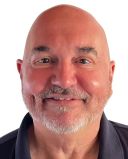Resilience
Helping to Heal the World Begins Within
Personal Perspective: Autumn is a great time to reflect on our healing.
Posted September 22, 2023 Reviewed by Ray Parker
Key points
- Autumn is an ideal season to reflect on how we are working to heal our inner wounds.
- The Jewish concept of Tikkun Olam offers a powerful life purpose.
- Helping to heal the world begins by choosing to heal ourselves.

As autumn brings its annual fireworks display, when deciduous trees reveal their “true colors”—beneath the green chlorophyll that masked them all summer—it seems most fitting that the Jewish High holidays occur at this season. Rosh Hashanah, the Jewish New Year, lasted from sunset, on September 15, to nightfall on the 17th. The holiest day on the Jewish calendar, Yom Kippur, the Day of Atonement, begins at sunset on September 24 and lasts until nightfall on the 25th.
Celebrating the new year, reflecting on and atoning for the errors and offenses made in the old one, strikes me as a perfect way to enter this season of transformation, when—for us New Englanders, certainly—the entire landscape blazes out in brilliant color. It’s a good time to reflect on the past and resolve to do better in the time that lies ahead.
Although I am not Jewish, I have found in the 2,000-year-old Jewish concept called “Tikkun Olam” the clearest summation of my own belief in what life is “for.” Tikkun Olam calls upon all Jews to help repair, or heal, the world. In Jewish tradition, this is done through acts of loving-kindness. It has come to connote practicing and seeking social justice.
In the Roman Catholic tradition that I grew up in, “corporal acts of mercy” represent loving actions that extend God’s compassion and mercy to those in need—thereby helping to heal the world.
I suggest that helping to heal the world begins with working to heal ourselves. Few of us who live to adulthood, certainly into our middle and later years, escape sorrow, suffering, and, yes, trauma. All of us experience bumps, sometimes even sinkholes, in the road of life.
Choosing, repeatedly, to haul ourselves up and out of them is what is known as resilience. It is a choice and it consists of actions.
One important action in our own healing is choosing to forgive someone who has hurt us. When we understand that we harm ourselves most of all by holding onto grudges and resentments, it becomes clear that in forgiving another we also relieve ourselves of the burden of all that negativity.
Unburdening ourselves of thoughts and feelings that keep us mired in victimhood, we free ourselves to be strong practitioners of acts of loving kindness and corporal acts of mercy.
Mother Teresa (1910-1997) was an Albanian Catholic nun and the founder of the Missionaries of Charity. She was famous worldwide for her work among the destitute in the slums of Kolkata, India.
Early in my journalism career, when I was reporting from Washington, D.C., on the growing AIDS epidemic in the 1980s, I met not-yet-canonized Mother Teresa at an outdoor Mass held at her Gift of Peace AIDS hospice in Washington, DC. There were only a few of us with her, and we each were able to shake her hand and receive a medal she blessed.
There was whispering in the community about whether people with AIDS—mainly gay men then—would feel welcome in the hospice given the Catholic church’s dim view of homosexuality. I later heard only the highest praise for the sisters at the Gift of Peace hospice.
Years later when I interviewed people for my book Victory Deferred: How AIDS Changed Gay Life in America, one of my sources was a lawyer in Houston, Texas. John Paul Barnich told me that when he was in law school, he spent time in India, where he visited one of Mother Teresa’s homes for the poor.
“On the wall,” said Barnich, “someone had painted ‘God is love in action.’” He said to himself, “This is a concept of God I can deal with—translating caring into some sort of action.”
For Barnich, that action included co-founding AIDS Foundation Houston, the first organization in Texas to offer care and support for people living with HIV-AIDS. He provided legal services for people who were being abused and rejected everywhere, evicted from their homes, and disowned by their families.
Mother Teresa said, “Not all of us can do great things. But we can do small things with great love.”
Learning to properly love ourselves, and to heal from our inner wounds, is an important step toward helping to heal the world. But it’s only the first step.
Ralph Waldo Emerson put it beautifully: "The purpose of life is not to be happy. It is to be useful, to be honorable, to be compassionate, to have it make some difference that you have lived and lived well."




